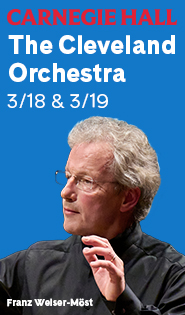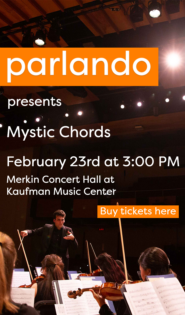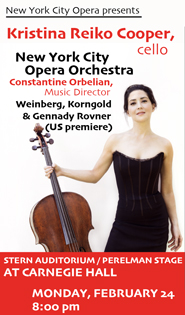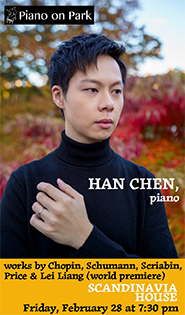Opera stars of the future shine brightly in London Competition Finals

For the last half century or so, if you wanted to know what opera stars of the future were coming out of the USA and Canada, a good place to start has been the finals of the George and Nora London Foundation Competition, held every year in New York City.
If you timed your visit right, you might have had a first look at the likes of Renée Fleming, James Morris, Dawn Upshaw, Anthony Roth Costanzo, Joyce DiDonato, and a host of other future luminaries.
Hoping to join them in the starry firmament this year were 12 highly accomplished singers, ages 23 to 33, who gathered Friday afternoon in the Gilder Lehrman Hall at the Morgan Library and Museum and performed one aria each for a distinguished jury, as well as a live and online audience.
The competition was founded in 1971 by George London, the powerful American bass-baritone who excelled in roles ranging from Don Giovanni to Boris Godunov before a paralyzed vocal cord ended his career in his mid-40s.
Friday’s finalists were selected from a pool of 175 applicants through a three-day process of preliminary auditions, and this was their last chance to make an impression. Jury members were mezzo-soprano Susan Quittmayer, tenor Dimitri Pittas, bass-baritone James Morris, and soprano Harolyn Blackwell. Soprano, administrator and consultant Gayletha Nichols served as chair.
One might have expected a lot of swinging for the fences vocally, but actually an agreeable variety of musical expression came out of this mini-recital, as each contestant played to his or her strong points—a slinky Carmen here, a plucky Pamina there, an arrogant Count Almaviva, a comical Bottom, and so on.
When all the contestants had strutted and fretted their hour upon the stage, the audience adjourned to the lobby for refreshments while the jury deliberated. Awards consisted not of medals but of cash grants: $12,000 each to winners of the George London Award, while the other finalists each received an “encouragement award” of $2,000 and an invitation to apply again in future years.
In three-quarters of an hour of deliberations, the jury selected five singers to receive the George London Award: tenor Alex Carlson, soprano Magdalena Kuźma, bass-baritone Joseph Parrish, soprano Shelén Hughes, and bass-baritone Evan Lazdowski.
While Carlson had the vocal power and agility for the title role in Peter Grimes, his portrayal of the outcast fisherman, driven mad by guilt and despair, was most notable for its psychological insight into this complex character.
Kuźma, at 28 already an alumna of the Metropolitan Opera’s Lindemann Young Artist Development Program and of actual roles at the Met, affirmed her Polish heritage in a dramatic aria from Moniuszko’s Halka. Her exceptionally well-integrated, full-toned instrument moved seamlessly from tender pianissimo to thrilling forte.
Parrish, as the garage-owning everyman Bob in William Grant Still’s Highway 1, USA, raged against society and the conflicts in his own family in the aria “A dream wasted,” in a strongly supported, focused baritone with a brilliant top.
As the title character in Rimsky-Korsakov’s fairy-tale opera The Snow Maiden, Hughes charmed with volatile vocalizing and found the expressive line through her part’s constant stops and starts.
“When my cue comes, call me,” are Bottom’s first words on awakening from his tryst with Tytania in Britten’s opera A Midsummer Night’s Dream, and what follows is quite a different kind of mad scene from the one in Peter Grimes. Lazdowski’s performance in the role was also different from your typical vocal recital, which doesn’t usually involve the singer crawling on the floor under the piano. The audience appreciated his antics and his rustic baritone.
While they didn’t catch the brass ring this time, the other finalists each had plenty to offer. Bass-baritone Sam Dhobhany was all understated irony in Figaro’s aria “Non più andrai.” Soprano Emily Damasco managed to be both starchy and flirty while negotiating the wide skips in Fiordiligi’s “Come scoglio.” Mezzo-soprano Ruby Dibble embodied “amour” with sinuous rubato in Carmen’s “Habanera.”
Baritone Korin Thomas-Smith needed only easy vocal power and a few gestures to capture the arrogance of Count Almaviva in “Hai già vinta la causa.” Soprano Dalia Medovnikov brought a lyrical voice with heft in reserve to the shifting emotional states of Pamina in “Ach ich fuhl’s.” Bass Alan Williams created another haunting Britten character in the hollow tones of the murderous Claggart’s aria from Billy Budd. Soprano Rachel Kobernick gave a spirited performance as Adelaide, the witch’s daughter determined to snare a porcine husband in Jonathan Dove’s The Enchanted Pig.
There was plenty of enchantment emanating all evening from the piano as well, where Lachlan Glen, a remarkably agile and versatile player, spun every kind of mood around the singers and followed them breath for breath from Mozart to Moniuszko to Still. Whether tender or robust, Glen’s playing gave the singers a shot of energy and a taste of the large orchestras they aspire to sing with.
The livestream of the 2025 George and Nora London Competition finals may be viewed free of charge at georgeandnoralondon.org.




